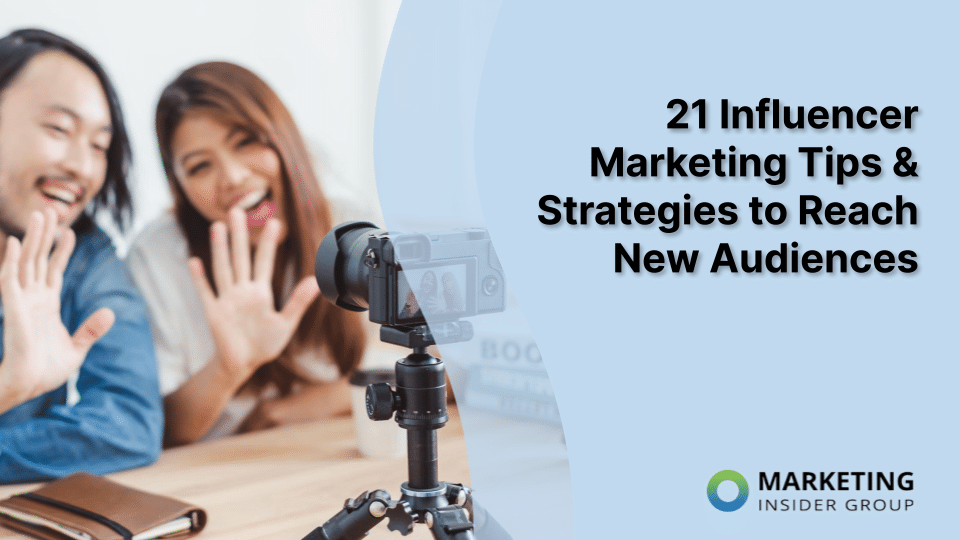
Why HR Is The New Marketing
One of the biggest trends in marketing may not even be happening in the marketing department at all.
As the youngest adults enter the workforce, they are placing tough expectations on employers.
And they are looking for meaningful work that aligns with their skills and passions.
Over the past few months, we talked to a number of the top influencers in HR to understand what is “the future of work.” And the most insightful conclusions we uncovered had just as much to do with Marketing as it does with HR.
HR Is the New Marketing
In a world of infinite media choices, the best way to reach new buyers and new talent might be right under your nose. Your own employees represent the greatest opportunity to create meaningful marketing and to develop Human Resources programs that increase sales, while also finding and retaining top talent. Is HR the new Marketing?
In the battle for new talent, HR departments have been forced to expand their role from hiring and firing, overseeing personnel systems and processes, and handling benefit management to include leadership development and training, employer branding, and diversity initiatives.
HR has been forced to adopt strategies that look, well, very much like marketing. These days, HR develops campaigns to grow employer awareness, to build the employer brand as a “great place to work,” and to retain top talent. All traditional marketing objectives.
While many in HR have embraced these traditional marketing skills, the most effective companies are moving beyond HR simply applying marketing techniques to a whole new opportunity. These effective companies are actually activating employees as a new marketing channel to achieve both HR and marketing objectives.
Proceed with Caution
One of the biggest obstacles to achieving the potential of employees as a new marketing channel is the perception of marketing as advertising.
Asking (or forcing) your employees to share product content on their social media channels is just as dangerous as asking them to share (or guilting them into sharing) what a great place your company is to work.
Consumers are increasingly ignoring and blocking advertising messages, with some research even suggesting that promotional messages from brands can have the opposite of their intended effect. These misguided efforts can actually cause sales to decline!
While some employees may authentically share their excitement and passion for the products they work on, the projects they are engaged in, and the company they work for, (and we should celebrate that,) this is not a sustainable strategy for getting new customer or talent.
Content Marketing and HR
Content marketing has emerged as one of the hottest trends in marketing. Marketers are learning to think and act like publishers to create entertaining, interesting, or helpful content that consumers actually want to read and share (vs. promotional ads). And this approach allows a brand to reach, engage, convert and retain new customers.
The opportunity to activate employees to achieve marketing and HR objectives starts by creating content they naturally want to share.
As the first VP of Content Marketing at SAP, I learned to tap into the power of my fellow employees to create a marketing program that delivered massive ROI.
The biggest lesson I learned? HR is the new Marketing!
With a limited budget for content, I asked our internal experts to write articles on whatever they wanted. We had one editorial rule: no product promotion. Our internal experts could explore their professional or personal passions and interests, even if it meant writing about cat videos. Because somewhere out in the world, I believed there was a potential customer, employee, partner or investor who might also loved cat videos. (No one ever wrote about cat videos. Bummer!)
I even created a slideshare deck to explain the value for these employees/budding content marketers:
- Grow your personal brand
- Increase or establish your authority on the topics you are interested in
- Gain new social media followers
- Maybe even find that new job or get promoted
We also encouraged this behavior by publicly recognizing our top articles and authors each week in a round-up post. We made rock stars of the best performers as their social connections and influence increased. And this drove more employees to sign up.
Today, that site has hundreds of employee contributors. All are growing their personal brand, while expressing their passions and expertise to the world. And many of the employees who don’t write articles voluntarily share the content with their social connections.
As LinkedIn’s own Jason Miller mentioned in his article, the trick is to define what’s in it for them.
But why does this work?
Because you can create massive momentum when we combine the needs of our customers, our employees, and our company based on THEIR own distinct interests:
- Companies want more loyal customers and talented employees.
- Employees want purpose and meaningful work that has real impact on their career and the world.
- Customers want to form relationships with brands on their terms and based on their self-interest
How to Activate HR to Boost Marketing:
1. Create a Customer-Centric Vision
Look around your organization, and you will see people above you, below you and beside you. The traditional org chart still exists to focus on your position in the hierarchy. But where’s the customer? Where is the customer in your org chart?
Even if your company mission isn’t customer-centric (“we are the leading provider of widgets”), your marketing vision must be. And there is one simple formula to get there:
Become a sought-after destination for which topic,
In order to deliver what customer value or impact.
2. Create Content Employees Want To Share
According to LinkedIn, the combined connections of employees on the LinkedIn platform is 10X larger than any company’s followers. And just 3 percent of company employees sharing branded content generate 30 percent of the views and clicks on that content.
Platforms such as LinkedIn Elevate, social selling programs, and other tools can dramatically increase the reach of your content, grow your company’s social presence, and improve the effectiveness of marketing programs — without spending a single dollar on paid media.
But you have to create content your employees want to share. You might even ask them to help you. The trick is to explain what’s in it for them: creating or sharing content can help them build more connections, establish relationships with other leaders in your industry and grow their personal brand so they can achieve happiness in their careers.
3. Measure The Results
Measure the impact of your employee content sharing for your company. Demonstrate how it has benefited the employees (increased connections, awards and recognition). Discuss ways to profile your best customers as well.
And partner with your colleagues across HR, marketing, and sales to determine the best ways to continuously optimize what is working for everyone.
If you’re in marketing, it’s time to start thinking about your colleagues in HR as your new best friend. And if you’re in HR, it’s time to think about how marketing can help you acquire and retain the best talent — while making the leadership team happy as well.
HR Is Also Becoming the Marketer of the Employee Brand
This was called out specifically by The Millennial CEO author and EC3 CEO Daniel Newman (@DanielNewmanUV):
HR is moving from the department that finds talent, vets candidates, hires and administers benefits to a group that is responsible for marketing the brand to the best of the best potential candidates. They are now in charge of customer experience for the first customer of any organization which is its employees.
According to Daniel, “companies have a better platform than ever before to share their ideas, goals, visions and plans. Content through social vehicles are perfect augmentations to traditional corporate communications.”
The Future of Work Is Liberating Individual and Collective Genius
That was the key point from my interview with blogger, evangelist and business educator Angela Maiers (@AngelaMaiers). She adds that “a company is no longer what the marketing department says it is – it’s what the world says it is.” She continues:
The business of the future keeps its employees engaged by liberating and leveraging their individual and collective genius. This is only possible in an organization in which everyone is invited to contribute fully. The most profound source of motivation, regardless of title or position, is a human being’s quest for significance. People need to feel noticed and valued and to believe they are an essential part of the organization. This is not ideology; it is biology. The need to matter does not stem from the ego; it stems from our DNA.
Work Is More Than a Math Problem
Finally, I talked to Shawn Murphy (@shawmu), the co-founder of SwitchandShift.com and author of Creating Joy at Work.
Shawn believes employees must think of themselves as a brand, define that brand on paper and develop a personal mission statement for what they want to achieve.
While this may sound a little Tony-Robbins-ish, those are marketing thoughts and ideas. And Shawn believes this is the best way we can all identify opportunities to achieve our career aspirations.
According to Shawn, managers and employers play a huge role in this process as well:
We all want to do work that matters and is meaningful. Managers must learn about their employees’ strengths (what lights them up) and find ways to adjust the work to line up with each persons strengths. Managers must also learn to help employees understand why their work matters.
I believe that one of the biggest trends in marketing has more to do with HR than marketing: HR thinking and acting like marketers of the brand – the employer brand!







If HR is the new marketing, they need to learn to treat job applicants as potential customers.
The lack of professionalism and response shown by companies’ HR departments, and their automated ATS, make a very poor impression on a potential employee who may end up being a client in the future.
That’s exactly right Tom. It’s a complete reversal of what most companies do today: treat applicants like cattle. In order to win the battle for talent, HR needs to create a better applicant process for sure.
Well said Tom… the future employee is so often treated like a dry lead but in fact they are your client with the biggest Monthly Return possible.